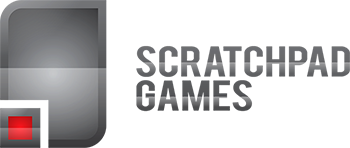03-17-2018, 06:32 PM
(This post was last modified: 03-17-2018, 07:35 PM by Brian Beuken.)
Well yes, but no....
The book is not designed to be a tutorial for the C/C++ language, you are expected to have learned some of the basics of C/C++ before you start, the code used is deliberately very simple, some can argue too simple, so that a brand new coder won't be too overwhelmed, but it's not a tutorial for the language. Though as you work through the book we learn to use more complex C/C++ concepts, its never in as much detail as a proper C/C++ tutorial will do.
I call it core concepts, the basics of what you need to help you build understanding of how to do things, but there are nearly always better more elegant and possibly simpler ways if you understand the language better.
I do some tutorials for the Raspberry via the MagPi magazine, which attempts to teach basic C/C++ (and OpenGLES2.0) but you really should still be working your way though a book/tutorial and be familiar with how a C/C++ project builds and compiles, the basic concepts of OOP and class based architectures.
I advise all my students to work their way through this book
https://www.amazon.co.uk/Beginning-C-Thr...027&sr=1-2
Its an excellent introduction to C++ and goes through almost all the features of the language. Its sadly quite light on actual game or graphic programming, but its a very easy to understand book with good working examples that you can do at your own pace. Everything you are ever going to need to understand C/C++ is in this book, everything you need to use it, to make games, is in mine.
Of course books are subjective, and other beginner books might be more appealing to you, but make the effort to work your way through a beginners book, understand the build cycle, how to create classes, know how a program flows and understand pointers, references and memory. As well as loops and the concepts of OOP.
Even if your grasp is basic, once you have that, my book is much easier to work with.
The book is not designed to be a tutorial for the C/C++ language, you are expected to have learned some of the basics of C/C++ before you start, the code used is deliberately very simple, some can argue too simple, so that a brand new coder won't be too overwhelmed, but it's not a tutorial for the language. Though as you work through the book we learn to use more complex C/C++ concepts, its never in as much detail as a proper C/C++ tutorial will do.
I call it core concepts, the basics of what you need to help you build understanding of how to do things, but there are nearly always better more elegant and possibly simpler ways if you understand the language better.
I do some tutorials for the Raspberry via the MagPi magazine, which attempts to teach basic C/C++ (and OpenGLES2.0) but you really should still be working your way though a book/tutorial and be familiar with how a C/C++ project builds and compiles, the basic concepts of OOP and class based architectures.
I advise all my students to work their way through this book
https://www.amazon.co.uk/Beginning-C-Thr...027&sr=1-2
Its an excellent introduction to C++ and goes through almost all the features of the language. Its sadly quite light on actual game or graphic programming, but its a very easy to understand book with good working examples that you can do at your own pace. Everything you are ever going to need to understand C/C++ is in this book, everything you need to use it, to make games, is in mine.
Of course books are subjective, and other beginner books might be more appealing to you, but make the effort to work your way through a beginners book, understand the build cycle, how to create classes, know how a program flows and understand pointers, references and memory. As well as loops and the concepts of OOP.
Even if your grasp is basic, once you have that, my book is much easier to work with.
Brian Beuken
Lecturer in Game Programming at Breda University of Applied Sciences.
Author of The Fundamentals of C/C++ Game Programming: Using Target-based Development on SBC's
Lecturer in Game Programming at Breda University of Applied Sciences.
Author of The Fundamentals of C/C++ Game Programming: Using Target-based Development on SBC's




